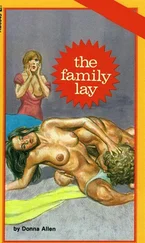Perrine reappeared in the library after about five minutes. “Mum’s on her way,” she said. A few seconds later, Sorrel swept into the room with a video in her hand. “Okay, girls,” she said. “Since your father’s having a tantrum, let’s watch Gone With the Wind. Lots of history in that. Men! They can’t cope with anything. They’re big babies, the lot of them!”
“Perrine just helped a bumcracker to do something to the house that he couldn’t do on his own,” said Allisande.
Sorrel put on Gone With the Wind , but stopped it almost immediately afterward and said, “Can you hear that? I think that’s your father shouting for help. I’m going to ignore him. Oh, I can’t concentrate on a movie! What shall we do instead?”
Before any of the girls could suggest anything, Sorrel’s eyes narrowed deviously and she said, “I know. Let’s talk about a different kind of history—the more interesting kind. Not your father’s interminable three-field systems and Kellogg-Brioche pacts—”
“Briand,” said Lisette defensively.
“Let’s talk about the day someone tried to hang Perrine from a tree,” said Sorrel.
“I’d rather not,” said Perrine. “I’ve put that behind me and moved on.”
“Rubbish,” said Sorrel. “You’re thirteen, and I’m your mother. You don’t get to move on until I say you can.”
Perrine sighed, as if she had just been set an incredibly tedious essay topic for homework.
“Here’s what I’d like us to discuss,” said Sorrel. “We know that a rope was hanging from a tree, and that it dropped to the ground eventually, which saved Perrine’s life. We know that Perrine said she saw a figure in the tree, up in the high branches, holding the rope. She also said she heard footsteps running away after this mysterious person had dropped the rope. But did anyone else see this attacker, either in the tree or running from the scene? Hmm?”
Perrine cocked her eyebrow mischievously. She seemed to understand what her mother was talking about. Lisette and Allisande were baffled. What could Sorrel mean? they asked themselves.
“I’m wondering, you see, if perhaps there was no aspiring murderer,” Sorrel went on. “What if Perrine attached that rope to the tree, put her own head in the noose and made sure to grab on to it with her fingers so that she didn’t choke to death?”
“I was dangling in midair!” said Perrine indignantly.
“All right, then,” said Sorrel. “What if you climbed the tree, tied the rope to the branch, put the noose around your neck and jumped, clutching the noose with your fingers to avoid strangulation? Did anyone see you standing there when the noose fell around your neck as you claim it did? Did anyone witness you not climbing the tree and then tumbling out of it, attached to a rope?”
“I don’t know who saw what,” said Perrine. “You’ll have to ask them.”
“Hmmm,” said Sorrel, her eyes narrowing again.
Lisette and Allisande were growing increasingly frightened. They would have preferred to hear all about Dreyfus’s exile to Devil’s Island and how it was really Esterhazy that committed the crime. They had taken for granted that someone had tried to kill Perrine, and now their mother was suggesting that perhaps it wasn’t true.
“But Mum,” said Lisette, “if no one is trying to kill Perrine . . .”
“. . . then we don’t need the bumcrackers! We can go back to school!” Allisande completed her sister’s sentence.
“I’m sorry, but someone did try to kill me,” Perrine insisted. “Ask yourself this, Mother: Why would I go to great lengths to fake an attempt on my life?”
“Sympathy?” Sorrel suggested. “Except you didn’t get any, did you? All your classmates and your teacher were quite happy to see you choking to death. Still, you got to be seen as the victim instead of the murderer, which must have been a nice change.”
“I’m sorry, is this lesson called ‘history’ or ‘falsifying history’?” Perrine sniggered at her own joke.
Lisette felt sick. Did Sorrel really believe what she was saying, or was she testing Perrine? Was she about to say, “I’m sorry, darling, of course I know you wouldn’t fake an attack on your life.”
Surely Perrine wouldn’t. Staging the attempted murder of yourself was as bad as committing murder. Worse, perhaps, because it was more devious.
No one ever found out what Sorrel was about to say, because at that moment something dramatic happened. The three sisters and their mother heard the word “Help!” being wailed from somewhere high up. “Oh for goodness’ sake,” snapped Sorrel. “Just listen to him! This is how your father reacts when someone walks into a room unexpectedly.”
“Mum, that’s not Dad’s voice,” said Allisande.
“HELP!” wailed the male voice again.
“She’s right,” said Lisette. “It’s not Dad.”
Sorrel stood up. She was about to go and investigate when she saw, through the window, a man falling to his death, just as Malachy Dodd had done before. His arms flailed as he fell.
There was a loud crash. Sorrel and her three daughters ran to the window. The man’s head had smashed open and there was blood spreading across the gravel where he’d fallen. “Oh my God!” said Allisande. “It’s the bumcracker who came in here, who Perrine helped!”
Perrine emitted a throaty chuckle. Sorrel, Lisette and Allisande looked at one another. They were all thinking the same thing: What if Perrine had somehow pushed the bumcracker off the scaffolding that was still attached to one side of Speedwell House? What if he’d grabbed onto a metal pole, hung on for as long as his arms and fingers could bear, crying for help and being ignored, and then fallen to his doom?
“Don’t look at me,” said Perrine, even though no one was because no one could bear to. “I didn’t kill him. He’s only a bumcracker, anyway. It’s not as if his life matters to anyone.”
8
Finally I’m alone in the house. DC Luce has taken his reams of notes and gone; Alex is dropping Ellen at school and then heading into town. I’m on my own with Figgy, who, thankfully, doesn’t detract at all from my satisfying feeling of isolation. He’s not going to stop me from doing what I’m about to do, or demand that I justify myself.
“I’ll tell you, Figgs, because you’re tactful enough not to ask.” I sit down at the kitchen table with a mug of tea and my laptop. “I’m going to Google the fuck out of Professor Anne Donbavand. Why? Because . . .”
I stop to type her name into the search box, then press “return.” First impression: no shortage of results, all relating to the right person. Most of this stuff looks deadly boring, possibly because I don’t have a shred of interest in Assyriology.
I’m about to plunge into the first web link on the list when I realize I’d abandoned my explanation after “Because.” That’s a bit shoddy, even if one is only explaining to a dog.
“Several reasons, Figgy. All of them persuasive, in my opinion. Ellen’s obsessed with George. She might have given him our phone number—my mobile too. She doesn’t have a phone of her own, so anyone wanting to contact her would need to call me or the house.”
Ellen has always been adamant that she’ll never have a mobile. In London, mine ruined everything we tried to do as a family. Every trip, dinner and birthday treat was interrupted by between five and ten texts, emails or calls, most of which required immediate responses. Ellen once called my BlackBerry “the family destroyer.”
“If George has the numbers, it’s possible his mother also has them,” I tell Figgy. “Am I saying that I think Professor Anne Donbavand is my mystery caller? No, not at all. But she could be. I’ve never heard her voice. She might have a weird lisp. She doesn’t want George to have any friends, right? Ellen is George’s friend. Doesn’t that make Anne Donbavand the person most likely to want our family to leave Devon and go back to London?”
Читать дальше











